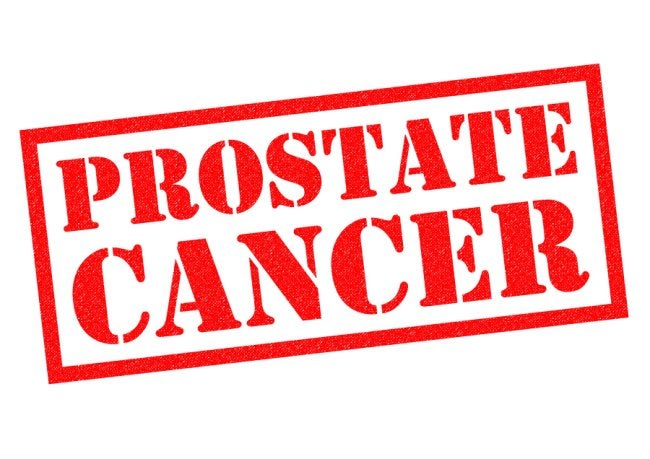-
Prostate Biopsies 101

A biopsy is the extraction of a small sample of tissue from within the body. This is done in order to test the tissue in a lab for signs of problems like prostate cancer. A prostate biopsy is generally not the first diagnostic test a urologist will recommend. First, the urology specialist may recommend blood tests and a urinalysis. If abnormalities are present, the doctor may perform a transrectal ultrasound with a biopsy.
This involves inserting a very small ultrasound transducer into the rectum. This allows the doctor to view ultrasound images of the prostate in real time. Then, a small needle is used to extract tissue from the site of the suspected tumor. In the lab, a pathologist studies the tissue to confirm the diagnosis. To help the patient stay comfortable during this procedure, the doctor can administer local anesthesia and a light sedative. If sedation is used, the patient will need someone else to take him home afterward.
Specialized prostate cancer care is available throughout Tennessee at Urology Associates, P.C. Call (855) 901-1338, and we’ll walk you through every step of the process—from diagnosis to treatment to follow-up.
-
Get the Answers to Your Questions About Prostatic Intraepithelial Neoplasia

After you undergo a prostate biopsy, the pathologist will study the tissue in a lab, and develop a report of the findings. One of those findings might possibly be prostatic intraepithelial neoplasia (PIN). Your urologist will discuss PIN and any other abnormalities in the pathology report. You should feel free to ask as many questions as you need in order to fully understand your diagnosis and the next steps to take.
Does PIN mean I have prostate cancer?
PIN is not the same thing as cancer. However, it can be a precancerous condition. Ask your urologist whether you have low-grade or high-grade PIN. Low-grade PIN does not appear to increase the risk of prostate cancer. It’s possible that high-grade PIN does raise the risk of cancer . Know that even if you do have high-grade PIN, this doesn’t mean you’ll definitely develop cancer—many men with PIN don’t.
What exactly is PIN?
The broad definition of PIN is simply that some of the cells in the prostate have started to look and function in abnormal ways. These abnormal cells can be found in the lining of the duct that transports semen, and in the lining of miniscule sacs that help produce the semen. PIN involves the abnormal changes of the epithelial cells that line these areas, but they don’t affect the actual lining. This is quite different from prostate cancer, which ruptures the epithelial lining.
What happens next?
Most men with PIN don’t need treatment, but they may have their prostate health monitored during the coming years. Talk to your urologist about whether active surveillance is an appropriate option for you. If so, you might undergo additional prostate biopsies at routine intervals. For the first two years, you might have a biopsy every three or six months. Afterward, you might have a biopsy every year for life. Your recommendations will be customized to accommodate your unique health situation.
Urology Associates, P.C. provides supportive care for men facing prostate disorders in Tennessee. If you’ve been diagnosed with PIN and you’re confused about what this means for your future, schedule a consult with one of our highly trained urologists. Call (855) 901-1338.
-
Getting to Know the WISH Team and Services
The Women’s Institute for Sexual Health (WISH) is available at Urology Associates, P.C. in Nashville. Here, highly trained providers take a collaborative, patient-focused approach to diagnosing and treating sexual health issues. Watch this featured video to meet some of the team members, including the clinical director and medical director.
You’ll also hear about the personalized care you’ll receive. Sexual dysfunction is a sensitive, private matter, and the providers at WISH will do everything possible to ensure your comfort.
To schedule an appointment with the WISH team, you can call them at (615) 250-9265. Our sexual health and urology specialists serving Nashville are committed to delivering high-quality care in a compassionate and confidential manner.
Recent Posts
categories
- Uncategorized
- Bladder Cancer
- Women's Sexual Health
- MonaLisa Touch
- Urology
- Urologist
- Erectile Dysfunction
- Kidney Cancer
- Incontinence
- Prostate
- MonaLisa Touch Laser Treatment
- Kidney Stones
- Urinary Tract Infections
- Event
- Sexual Dysfunction
- Testicular Cancer
- Prostate Cancer
- Urology Surgery Center
- urinary incontinence
- vaginismus
- noncoital pain disorder
- Hypoactive Sexual Desire Disorder
- Infographic
- provenge
- Xofigo
- robotic surgery
- hormone replacement
- diabetes
- renal cell carcinoma
- pelvic pain
- hematuria
- sexual health
- chronic testicular pain
- premature ejaculation
- Men's Health Clinic
- Dr. Melvin Seard
- Interstitial Cystitis
- vasectomy
- overactive bladder
- vaginal atrophy
- nocturia
- bladder infections
- urethral strictures
- Acute Epididymitis
- low sex drive
- circumcision
- pelvic floor dysfunction
- Peyronie's Disease
- prostatitis
- female sexual dysfunction
- varicocele
- difficult urination
- low libido
- PSA levels
- male fertility
- penile prosthesis
- prostatic intraepithelial neoplasia
- male infertility
- estrogen levels
- nurse navigator
- stress urinary incontinence
- vaginal yeast infection
- elevated psa
- painful sex
- adult circumcision
- epididymitis
- OAB
- kidney infection
- penile cancer
- pelvic organ prolapse
- Vasectomy Reversal
- bone health
- cystectomies
- clinical trials
- bloody urine
- Advanced Therapeutic Center
- WISH MedSpa
- neurogenic bladder
- WISH Team
- prostate biopsies
- BPH
- fecal incontinence
- lithotripsy
- osteoporosis
- kidney cysts
